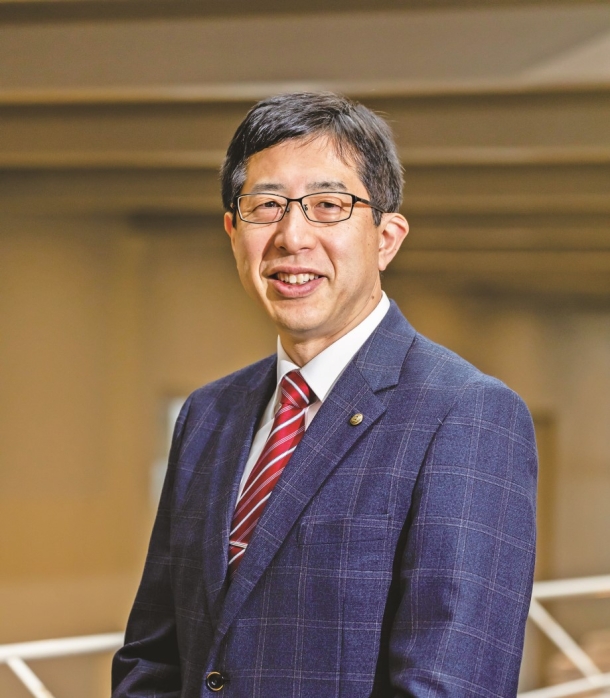- About the School
- From the Dean
From the Dean
Fostering an Inclusive Research Environment in Human Sciences
Mamoru Iwabuchi
Ph.D., Dean, Graduate School of Human Sciences, Waseda University
 The Graduate School of Human Sciences aims to provide an environment abundant in opportunities for all its members, including students, faculty, and other stakeholders, to pursue their research enthusiastically. Under the shared theme of “Human Sciences,” the issues we face are diverse. Depending on each area of expertise, even identical circumstances can yield entirely different perspectives. Rather than focusing only on widely recognized topics, noticing challenges no one else has yet recognized, and engaging with them through scientific approaches aids in discovering entirely new perspectives.
The Graduate School of Human Sciences aims to provide an environment abundant in opportunities for all its members, including students, faculty, and other stakeholders, to pursue their research enthusiastically. Under the shared theme of “Human Sciences,” the issues we face are diverse. Depending on each area of expertise, even identical circumstances can yield entirely different perspectives. Rather than focusing only on widely recognized topics, noticing challenges no one else has yet recognized, and engaging with them through scientific approaches aids in discovering entirely new perspectives.
A multifaceted approach is required to understand humans. For instance, in the field of Social Welfare and Health Sciences—one of this graduate school’s research areas—care providers must be able to take on various roles when trying to understand individuals who receive care: those of observer, dialogue partner, and empathizer. Even in the same setting, each of these perspectives provides a different view, and all are essential. Moreover, Human Sciences teaches us that even when we understand individuals through multiple perspectives, there are also many layers/stages to that understanding.
In recent years, technology— particularly generative AI—has made significant strides forward. Neural network models inspired by the human brain, although limited to certain domains, have demonstrated capabilities that far exceed human performance in some tasks.
On the other hand, well-known research indicates that even a fully intact physiological network of nerves cannot recognize the surrounding world without opportunities for experiential learning. This suggests that while AI excels at large-scale computation, achieving a comprehensive understanding of the world remains a challenge.
In our rapidly changing society, grasping the diversity of human life and resolving emerging issues appear increasingly complex. Nonetheless, it is crucial that humans stay at the center when solving problems that are related to them.
While there is high expectation for the application of AI in research, we are also concerned that relying on AI for answers could undesirably simplify our conceptions of what is “correct” or “good.” Human Sciences acknowledges that “correctness” or “goodness” need not always be singular, and we believe that fostering an environment where these different values are mutually acknowledged can contribute to greater richness in our environment. Placing too much emphasis on efficiency and oversimplifying matters risk missing the chance to glimpse entirely new facets of the world which are not yet recognized by anyone, and therefore not captured within AI models.
Our graduate school tries our best to support research activities while cherishing the perspectives attainable through each member’s ongoing efforts. For our students, in particular, we strive to provide an inclusive environment where everyone can determine their own path, engage in lively discussions, and gain enriching experiences.
(January 29, 2025)
